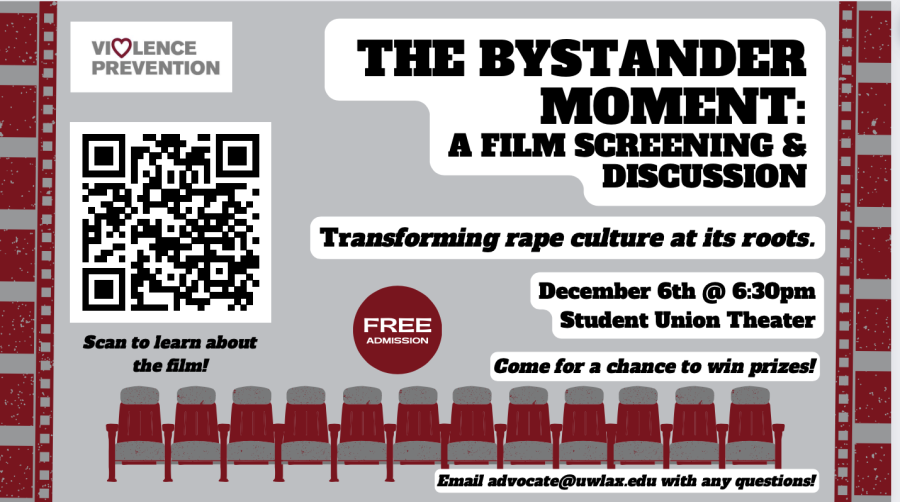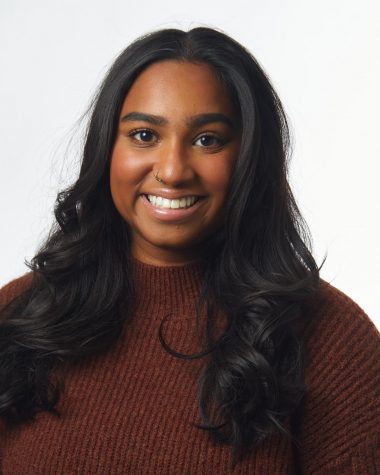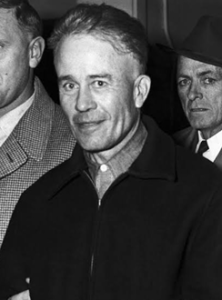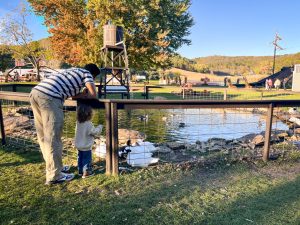“All it takes is one person”: Violence Prevention screens “The Bystander Effect”
December 12, 2022
*TW: sexual assault, rape, sexual harassment, and other sexual violence mentioned
Tuesday, Dec. 6, at 6:30 p.m. the University of Wisconsin-La Crosse Violence Prevention hosted a film screening of “The Bystander Effect” in the Student Union theater, followed by a facilitated discussion.
The film features activist and writer Jackson Katz who explores the role of bystanders in perpetuating sexual harassment, sexual assault, and other forms of gender violence. Katz focuses specifically on bystanders as our friends, family, coworkers, and other close-circle people, emphasizing that no one is immune to the bystander effect.
The bystander effect is a social psychological theory that states that an individual’s likelihood of helping decreases when passive bystanders are present in an emergency situation.
In the film, Katz looks at a variety of different factors that feed into the growing perpetuation of sexual violence and misogyny. He found that the negative effects of peer culture (particularly among men) combined with the misrepresentation and degradation of women in the media have normalized a sexist culture that has become deadly for women.
Katz also emphasizes that this is not just an issue in America, but across the globe, honing in on all the efforts through the #MeToo movement in recent years.
The film ran for just under an hour, followed by a facilitated discussion led by Violence Prevention Specialist Blythe McConaughey and Student Wellness Coordinator Issy Beach.
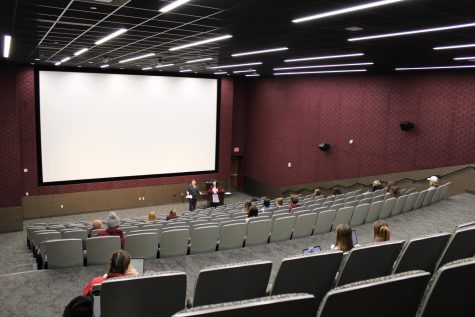
“This is an educational opportunity for our students,” McConaughey said, “We hear from students all the time in the Violence Prevention Office who are angry about past incidences of sexual assault that have occurred at UWL, in La Crosse, in the world. People come to Violence Prevention to process those things.”
McConaughey said she is often asked what will be done about the issue, and for the UWL Violence Prevention Specialist, educational movie showings are a step in the right direction.
“For me, this is what we’re going to do about it. We’re going to learn how to give and receive consent, we’re going to learn how to be active bystanders, we’re going to show up for our friends and for strangers, and do a better job of taking care of each other,” said UWL junior and health education student, Anika, who was among the students in attendance Tuesday night.
“I like how in the video they display violence as a spectrum of a lot of different occurrences; not only those very extreme cases like assault and rape, those direct acts of violence but also things like catcalling and coercion that is very much still contributing to the problem,” said Anika.
Anika referenced Katz’s pyramid, a visual aid explaining how specific instances of sexual assault (the top) are a result of poor attitudes, beliefs, and practices that have been put in place (the bottom).
Anika said, “It was really interesting to hear about how most of what people see on a regular basis occurs at the bottom of that pyramid. The small things you hear and see on a daily basis can form altogether to enable those really bad things, and keep people silent about them.”
Issy Beach is a recent alumnus from UWL. She currently works on campus with McConaughey in Violence Prevention. “As the coordinator, I come to my work in health education and health advocacy from a public health perspective. A lot of our work is rooted in prevention at its’ core which is something that this film talks about a lot.”
Beach agrees with Katz’s statements about addressing the cause, and said “attacking it at the root instead of from a reactive place” is important for students to know.
“We want students to be able to advocate for themselves and for people around them, and advocate in a way that is meaningful,” said Beach.
Despite the low turnout, the two Violence Prevention staff members say success is measured in all kinds of ways.
“You need one human who learned one new thing, and if we’ve done that, we’re successful,” said McConaughey.
RESOURCES
- Great Rivers 211 24-hour helpline: 211 or 800.362.TALK (8255)
- Suicide & Crisis Lifeline: 988
- (veterans and other service members: press 1)
- Hopeline (text): text ‘hopeline’ to 741741
- Trevor Lifeline (LGBTQ): 1.866.488.7386
- La Crosse County Crisis Line: 608.784.HELP (4357)
- University Police (emergency): 911 or 608.789.9999
- University Police (non-emergency): 608.789.9000
- La Crosse Police (non-emergency): 608.782.7575
- Gundersen Medical Center: 608.782.7300 or 800.362.9567
- Mayo Health – La Crosse: 608.785.0940 or 800.362.5454

